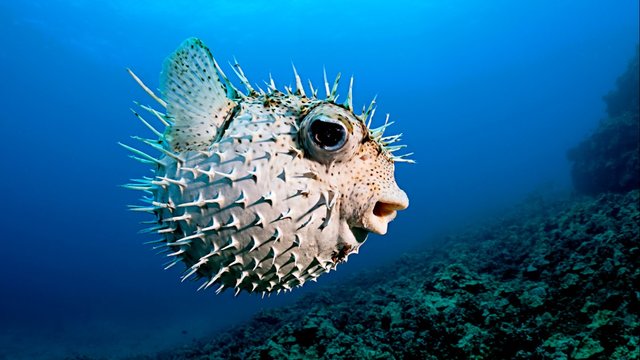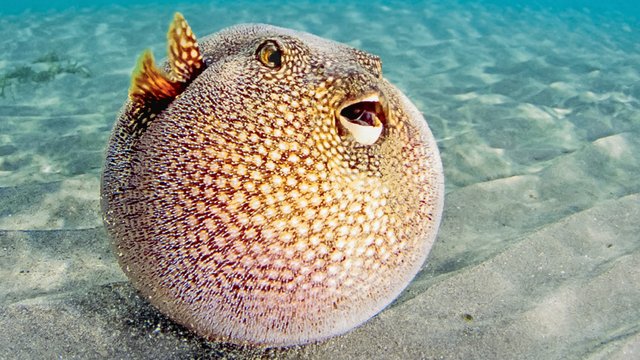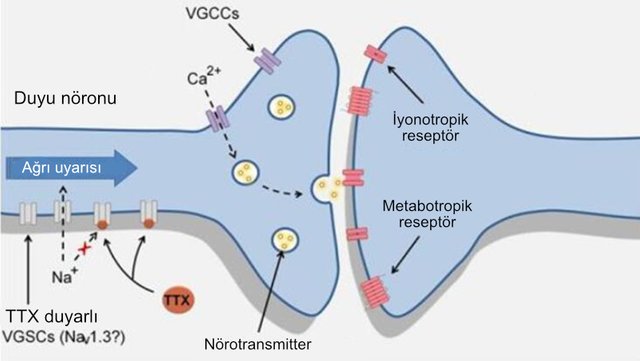Tetrodotoxin: From Poison to Medical Miracle!

Tetrodotoxin (TTX) is a neurotoxic biochemical that is known in the scientific world for its potent poison effect and causes voltage-gated sodium channel blockade. Every year, TTX is responsible for the poisoning and even death of many people, and especially the Tetraodontidae family of balloon fish or puffer fish, thanks to the transition to other organisms. And unfortunately there is no known antidote! However, when scientists isolated TTX and tested it in the human body, they discovered that TTX could be used in other pharmacological properties, particularly analgesic effects (pain, chemical properties that suppress pain).
In July 1894, Yashizumi Tahara, Japan's Association of Pharmacists monthly meeting, Tetraodontidae belonging to the family of eggs from the aqueous preparation of the balloon fish announced that the isolation of poison, the poison was purified and developed a form of large-scale introduced. In 1909, the puffer fish of the blowfish family was the only species that contained such a poison. It was controversial whether the balloon fish with TTX acquired this property endogenously (produced by the organism itself) or exogenously (taken from the outside or accumulated).
In 1964, when TTX was unexpectedly discovered in California salamander Taricha torosa, it was concluded that TTX could also be observed in marine life and terrestrial life forms. Although the exact origin of TTX is still unknown, balloon fish is shown as a relatively common form. In balloon fish, as a small gift of the food chain, TTX was produced by endosymbiotic bacteria and developed as a kind of deadly defense mechanism in the evolutionary process. In a later study, it was tested whether balloon fish could survive toxicity. Balloon fish containing toxic endosymbiotic bacteria lost their toxicity when dieting non-toxic bacteria. On the other hand, non-toxic balloon fish became toxic when they were dieting toxic endosymbiotic bacteria.
TTX-induced poisoning is common in Japan because contaminated (contaminating existing organisms or media by microorganisms) balloon fish is considered the most delicious fish species by the Japanese people. Of course, some enactments are also implemented. The mentioned cases of poisoning apply to unconscious consumption and service cases. For example, in Japan, the allowable amount of balloon consumption is 2 mg TTX per kilogram, but if this limit is exceeded, signs of poisoning are reported. Fortunately, only licensed chefs and restaurants are able to prepare and serve balloon fish.
Although TTX was first reported in Asian countries on the grounds that it threatens human health, it has been reported that it has spread to regions in the Pacific and Mediterranean regions in the following years. The reason for this is the increase in temperature in the oceans and seas around the world. Because the TTX carrier species have characteristics specific to hot waters. TTX, the most potent marine neurotoxin known, does not have a known antidote, which is about 1200 times stronger than cyanide, one of the most dangerous chemical toxins in humans. Therefore, poisoning cases usually result in deaths. As soon as TTX enters the organism, it is connected to the voltage-gated sodium channels, the working mechanism of the muscles and nerves. The symptoms begin to appear within approximately 10-15 minutes, depending on the dose of TTX taken. The most common symptoms manifest primarily as numbness in the lips tongue and pharynx, and the paralysis effect slowly spreads throughout the body. In some cases, loss of consciousness may occur, but in general, even if the patient is in a coma, he is conscious until he dies.
Denizel biyotoksinler, diğer canlılara etkisinin yanı sıra farmakolojik öneme de sahiptirler. Japonya’da özellikle balon balığının rağbet görmesi, TTX üzerine çalışmalar yapılmasına yol açtı ve TTX’in farmakolojik özellikleri anlaşılmaya başlandı. Son yıllardaki çalışmalar insan sağlığı üzerine TTX’in başlıca 3 farklı etkisi üzerinde yoğunlaşmış vaziyette. İleri seviyede kanser hastalarında ağrı kesici özellikte kullanılabileceği, anti-tümör etkisi sayesinde tümör büyüklüğünde azalmalara yol açtığı ve uyuşturucu bağımlılığında, kullanılan uyuşturucuya alternatif olarak bağımlılık yaratmayan opioidler (ana kullanım amaçları analjezi olan morfin benzeri ilaç grubu) yerine kullanılabileceği düşünülmektedir. Tüm bu olumlu etkiler, son yıllarda ilaç firmalarını TTX içerikli ilaç üretme konusunda çalışmalara yöneltmiştir. Gelecekte toksinin in vivo (canlının içinde) etkilerini önlemek için bir panzehir geliştirilebileceği umulmaktadır. Bu arada, kapsamlı bir insan riski analizi geliştirmek için TTX’in metabolik biyo-dönüşüm ürünlerinin vektör türlerinde yaygınlığı ve toksisitesi hakkında daha fazla araştırma yapılması gerekmektedir.
I really wouldn't want to be stung by one of these.
What an incredible fish!